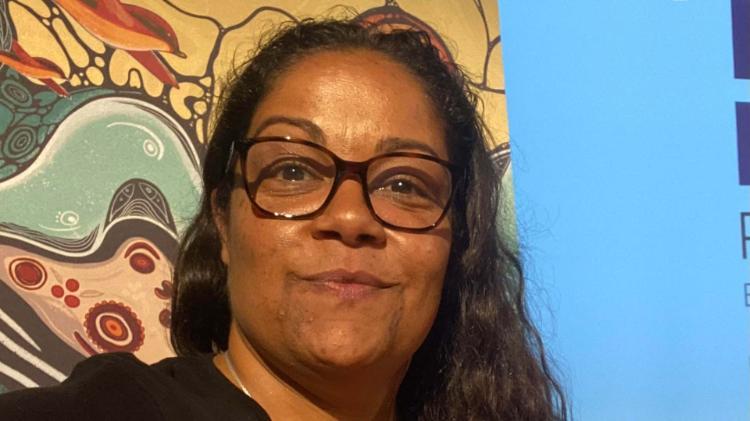Research
PhD title: Aboriginal Women know: Cultural burning and Aboriginal women in NSW
There is a long relationship between Aboriginal people, fire and Country. In Australia, this relationship supported sustainable livelihoods for thousands of generations. European invasion resulted in Aboriginal people being displaced from our lands and cultural practices, including the use of fire. Recently, there has been a push from Aboriginal groups to reinvigorate cultural burning practices. Cultural burning can produce environmental and social outcomes, such as bushfire hazard reduction; benefits can include strengthening cultural identities and communities, encouraging continuing cultural practice and intergenerational knowledge transfer. Working within an Indigenous research framework, this research aims to better understand Aboriginal women’s engagement in cultural burning in NSW. It examines the gendered dimensions of cultural burning in NSW including barriers to participation, meanings and outcomes. My research seeks to positively influence cultural burning policy development and management, to support an increase in Aboriginal women’s participation.
Awards
2021 – University of Wollongong Equity Fellowship Grant ($12,000)
2019 – University of Wollongong Woolyungah Indigenous Centre Caring for Country Award
2011 – University of Wollongong Faculty Award, for: Outstanding Contribution to Teaching and Learning, UOW Indigenous Geographies Program
2010 – NSW Department of Environment, Climate Change and Water - Spokeswomen’s Annual Recognition Awards, for: Mentoring
2008 – Illawarra Prize in Fourth Year Earth & Environmental Sciences, Best Overall performance in BSc Honours Earth & Environmental Sciences
Journals
- Cavanagh, V. & Standley, P.M. (2020) ‘Walking in the landscapes of our ancestors – Indigenous perspectives critical in the teaching of Geography’, Interaction, 48(1), pp. 14-16.
- Cavanagh, V., Hammersley, L. & Adams, M. (2022), ‘Igniting a conversation: Indigenous intercultural doctoral supervision’
Geographical Research, 60(1), pp. 46-58.
- Nolan, R.H., Bowman, D.M., Clarke, H., Haynes, K., Ooi, M.K., Price, O.F., Williamson, G.J., Whittaker, J., Bedward, M., Boer, M.M., Cavanagh, V.I., Collins, L., Gibson, R.K., Griebel, A., Jenkins, M.E., Keith, D.A., Mcilwee, A.P., Penman, T.D., Samson, S.A., Tozer, W.G. & Bradstock, R.A. (2021), ‘What Do the Australian Black Summer Fires signify for the global fire crisis?’, Fire, 4(4), p.97.
Chapters
- Cavanagh, V. (2020), ‘Grandmother trees, Aboriginal women and fire’, in P. Anderson, S Gardner, P. James & P. Komesaroff (eds.), Continent Aflame: Responses to an Australian Catastrophe, Palaver, Armadale.
- Cavanagh, V. (2022), ‘The (re)emergence of Aboriginal women and cultural burning in New South Wales, Australia’, in J. Weir & J.D. Scasta (eds.), Global Application of Prescribed Fire, CSIRO Publishing, Clayton VIC.
- Cavanagh, V.I. (2021), ‘This grandmother tree connects me to Country. I cried when I saw her burned’, in C. Day & M. Ratliff (eds.), Tree Story, Monash University Museum of Art, Clayton VIC, p. 22.
- Cavanagh, V.I. (2021), ‘Vanessa’s story’ in J.K. Weir, D. Freeman & B. Williamson (eds.), Cultural burning in Southern Australia, Report number 687.2021, Bushfire and Natural Hazards CRC, Melbourne.
- Ens E., Reyes-García, V., Asselin, H., Hsu, M., Reimerson, E., Reihana, K., Sithole, B., Shen, X., Cavanagh, V. & Adams, M. (2021), ‘Recognition of Indigenous Ecological Knowledge Systems in Conservation and Their Role to Narrow the Knowledge-Implementation Gap’, in C.C. Ferreira & C.F.C. Klütsch (eds.), Closing the Knowledge-Implementation Gap in Conservation Science Interdisciplinary Evidence Transfer Across Sectors and Spatiotemporal Scales, Springer, Cham, Netherlands.
- Tynan, L & Cavanagh, V. (2021), ‘Fire’, An A to Z of Shadow Places
- Williamson, B., Weir, J & Cavanagh, V. (2020), ‘Aboriginal people find strength despite perpetual grief’, in P Anderson, S Gardner, P James & P Komesaroff (eds.) Continent Aflame: Responses to an Australian Catastrophe, Palaver, Armadale.
Op-ed
- Cavanagh, V. (2020), ‘Friday essay: this grandmother tree connects me to Country. I cried when I saw her burned’, The Conversation, Volume 24, January 2020.
- Williamson, B, Weir, J & Cavanagh, V 2020, ‘Strength from perpetual grief: how Aboriginal people experience the bushfire crisis’, The Conversation, Volume 10 January 2020.
Films

